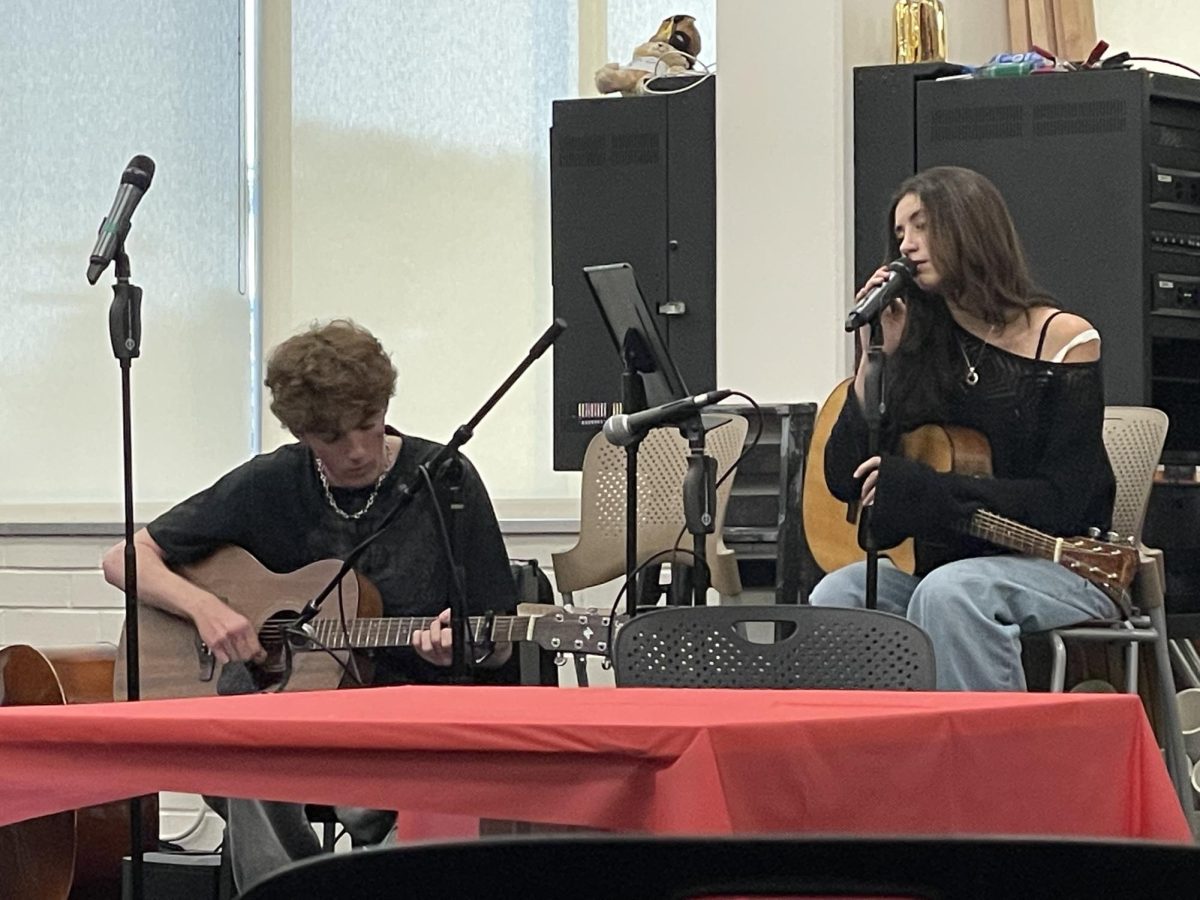In an effort to raise awareness about the environmental degradation caused by the fast fashion industry, AP Environmental Science students hosted a sustainable clothing sale with student-donated attire on campus Feb. 11. Maddie Boudov ’21, Sergio Coury ’20, Fernando Diaz-Ojeda ’20 and Mimi Offor ’21 spearheaded the sale as an extension of their AP Environmental Science Research and Action Project, in which participants host a community outreach opportunity addressing and combatting a certain environmental issue.
AP Environmental Science students host sustainable fashion sale to combat fast fashion industry
Boudov, Coury, Diaz-Ojeda and Offor will donate the profits and the remaining clothing items to Goodwill. Boudov said she was inspired to host this fundraiser to prolong the lifespan of clothing, while also supporting a charitable organization.
“We decided to do a sustainable fashion sale because we wanted to promote the reuse of clothing instead of just perpetuating the fast fashion industry by constantly buying more and more clothes and sending the clothes that we no longer wear to the landfill,” Boudov said. “We thought, why not encourage people to give clothes a new life while also raising money for Goodwill, a company that promotes business and work, and helping people get into jobs who have been struggling?”
Sustainable fashion sale conducted in response to fundamental ideas taught in AP Environmental Science
AP Environmental Science teacher Nadine Eisenkolb said that the problem of fast fashion reflects concepts students have learned in her class.
“Fast fashion isn’t part of the [AP Environmental Science] curriculum, but it relates to what we’ve learned about the linear economy, where we harvest a resource, sell a product, consume a product and then waste a product at the end of its lifespan,” Eisenkolb said. “In countries with less regulation, there are the consequences of water pollution, social consequences of not having sufficient wages and other external costs associated with a product made very cheaply and with less regulations.”
Jo Grody ’22, who bought a graphic tee from the fashion sale, said she thought that the fundraiser benefited individuals who donated and purchased sustainable clothing.
“I think it was a win-win for everybody involved,” Grody said. “You get to buy cheap clothes and also help a good cause.”
Boudov said that while the fundraiser did not sell as well as she had hoped, it succeeded in spreading the word about the environmental toll of fast fashion.
“If we were to do something like this in the future, we would do a lot more promotion for the actual sale, not just the collection of clothes,” Boudov said. “A lot of people like this idea in theory but haven’t been as enthused to purchase things because sizes are limited to what people donate. But we have been making sales consistently throughout the day, and I think we have been successful in bringing awareness to the issue of fast fashion and the greatness of thrifting and second-hand shopping.”































